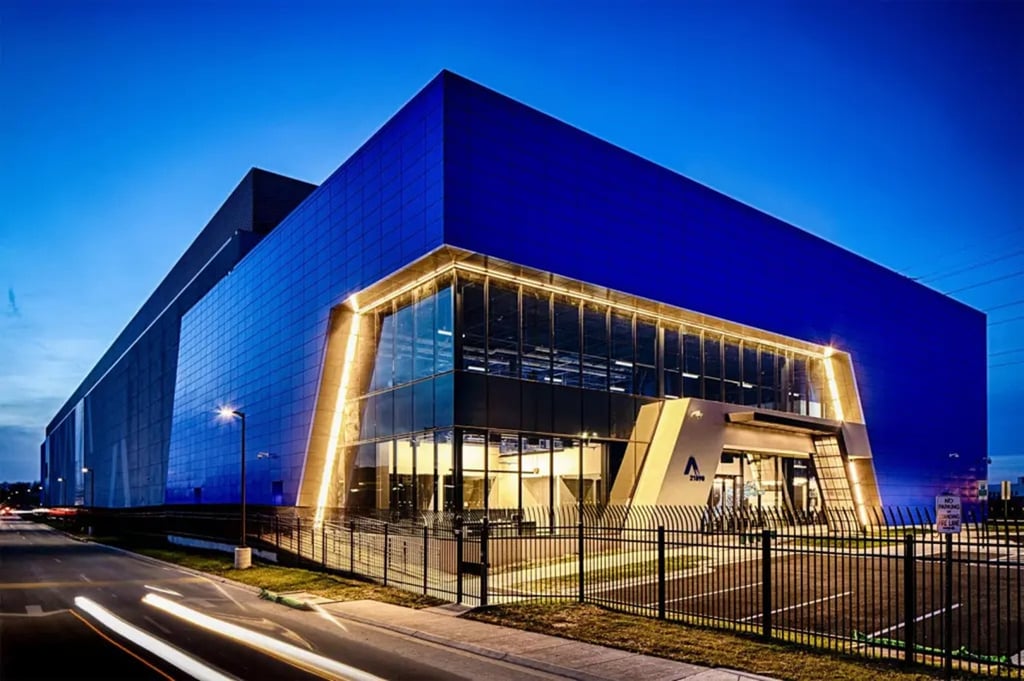Huawei predicts that in less than a decade, billions of devices will light up the Internet of Things (IoT) and it will have a transformative effect on both the economy and everyday life. According to the Chinese telecommunications equipment maker’s 2016 Global Connectivity Index, data from 100 connected devices will pour into the world’s networks […]
Datamation content and product recommendations are
editorially independent. We may make money when you click on links
to our partners.
Learn More
Huawei predicts that in less than a decade, billions of devices will light up the Internet of Things (IoT) and it will have a transformative effect on both the economy and everyday life.
According to the Chinese telecommunications equipment maker’s 2016 Global Connectivity Index, data from 100 connected devices will pour into the world’s networks and the IoT by 2025. Such widespread adoption will not only “drive millions of new apps and solutions,” but also bring the world closer to a sci-fi inspired future.
“IoT will evolve towards task-based technologies like driverless vehicles, robot-controlled factories, and self-managing buildings,” stated the report. “These will stimulate a revolutionary transformation in business processes and lifestyles.”
In 2016, Huawei expects worldwide IoT investments to rise 14.3 percent to $800 billion from $700 billion last year. By comparison, telecom investments are expected to grow 1.3 percent to $1.54 trillion this year. The data center market will experience a 1.9 percent gain for a total of $110 billion.
This vision of the near future will be made possible, in part, by a global push to expand access to broadband and improve speeds. Huawei’s study found that national average connectivity levels jumped 5 percent compared to 2015.
Ranking first in Global Connectivity Index with a score of 74, the United States has one of the most extensive LTE networks in the world, noted Huawei. Meanwhile, American telecom providers are beginning to lay the groundwork for IoT-friendly 5G networks.
Other high-ranking countries include Singapore (72), Sweden (70), Switzerland (68) and the United Kingdom (65).
Nations have good reason to want to climb up the rankings. A one-point increase can drive up productivity by 2.3 percent, innovation by 2.2 percent and competitiveness by 2.1 percent, as well as boost a country’s per-capita gross domestic product (GDP), claimed Huawei.
“Nations that are in the early stages of economic digitization should develop long-term technology plans that include broadband and data centers to reap the benefits of enhanced growth,” said Kevin Zhang, president of Huawei Corporate Marketing, in a statement. “Developed economies wanting to capitalize on their frontrunner ICT [information and communications technology] status should invest more in cloud, big data, and IoT technologies and solutions to experience the full benefits of a digital economy.”
Huawei evaluated a total of 50 countries, which account for 90 percent of the world’s gross domestic product (GDP) and represent 78 percent of the population. In addition to broadband coverage, the index takes into account data centers, cloud, big data and IoT, among several other factors.
Pedro Hernandez is a contributing editor at Datamation. Follow him on Twitter @ecoINSITE.
-
Huawei’s AI Update: Things Are Moving Faster Than We Think
FEATURE | By Rob Enderle,
December 04, 2020
-
Keeping Machine Learning Algorithms Honest in the ‘Ethics-First’ Era
ARTIFICIAL INTELLIGENCE | By Guest Author,
November 18, 2020
-
Key Trends in Chatbots and RPA
FEATURE | By Guest Author,
November 10, 2020
-
Top 10 AIOps Companies
FEATURE | By Samuel Greengard,
November 05, 2020
-
What is Text Analysis?
ARTIFICIAL INTELLIGENCE | By Guest Author,
November 02, 2020
-
How Intel’s Work With Autonomous Cars Could Redefine General Purpose AI
ARTIFICIAL INTELLIGENCE | By Rob Enderle,
October 29, 2020
-
Dell Technologies World: Weaving Together Human And Machine Interaction For AI And Robotics
ARTIFICIAL INTELLIGENCE | By Rob Enderle,
October 23, 2020
-
The Super Moderator, or How IBM Project Debater Could Save Social Media
FEATURE | By Rob Enderle,
October 16, 2020
-
Top 10 Chatbot Platforms
FEATURE | By Cynthia Harvey,
October 07, 2020
-
Finding a Career Path in AI
ARTIFICIAL INTELLIGENCE | By Guest Author,
October 05, 2020
-
CIOs Discuss the Promise of AI and Data Science
FEATURE | By Guest Author,
September 25, 2020
-
Microsoft Is Building An AI Product That Could Predict The Future
FEATURE | By Rob Enderle,
September 25, 2020
-
Top 10 Machine Learning Companies 2020
FEATURE | By Cynthia Harvey,
September 22, 2020
-
NVIDIA and ARM: Massively Changing The AI Landscape
ARTIFICIAL INTELLIGENCE | By Rob Enderle,
September 18, 2020
-
Continuous Intelligence: Expert Discussion [Video and Podcast]
ARTIFICIAL INTELLIGENCE | By James Maguire,
September 14, 2020
-
Artificial Intelligence: Governance and Ethics [Video]
ARTIFICIAL INTELLIGENCE | By James Maguire,
September 13, 2020
-
IBM Watson At The US Open: Showcasing The Power Of A Mature Enterprise-Class AI
FEATURE | By Rob Enderle,
September 11, 2020
-
Artificial Intelligence: Perception vs. Reality
FEATURE | By James Maguire,
September 09, 2020
-
Anticipating The Coming Wave Of AI Enhanced PCs
FEATURE | By Rob Enderle,
September 05, 2020
-
The Critical Nature Of IBM’s NLP (Natural Language Processing) Effort
ARTIFICIAL INTELLIGENCE | By Rob Enderle,
August 14, 2020
SEE ALL
DATA CENTER ARTICLES









